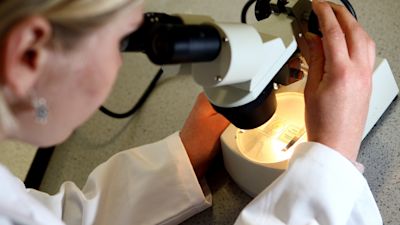Scientists from Cambridge and Newcastle pinpoint genetic cause of rare childhood disorders

The identification of the genetic cause of rare childhood immune disorders could help “defenceless” babies get quicker access to life-saving treatment, scientists have said.
A small number of children are born with little to no immune defence against infection.
When a person is born without a functional immune system, day-to-day infections can be life-threatening.
Researchers studied a small number of children affected by Severe Combined Immunodeficiency (SCID) and Omenn syndrome.
As a result they were able to pinpoint the genetic changes which links certain gene mutations to these conditions.
Some 11 children were studied by researchers from Cambridge's Wellcome Sanger Institute, Newcastle University, the and the Great North Children’s Hospital.
Scientists were able to link the conditions to mutations in the NUDCD3 gene, according to a new paper published in the journal Science Immunology.
All 11 children had inherited mutations that disrupted the function of this NUDCD3 protein, which had not previously been linked to the immune system.
Researchers said these mutations prevented the normal development of “diverse immune cells” which the body needs to fight off different pathogens.
Academics said that the finding could lead to early diagnosis and interventions for these conditions.
Dr Gosia Trynka, author of the study at the Wellcome Sanger Institute and science director at Open Targets, said: “For babies born with high-risk immunodeficiencies, early detection can mean the difference between life and death.
“These diseases leave newborns essentially defenceless against pathogens that most of us can easily fend off.
“The identification of this new disease gene will help clinicians to make a prompt molecular diagnosis in affected patients, meaning they can receive life-saving treatments more quickly.”
Professor Sophie Hambleton, senior author of the study at Newcastle University and practising paediatric immunologist at the Great North Children’s Hospital, said: “SCID and Omenn syndrome are devastating disorders, requiring complex and timely treatments.
“The more we can understand about its underlying causes, the better we can look after affected babies."
Want a quick and expert briefing on the biggest news stories? Listen to our latest podcasts to find out What You Need To Know